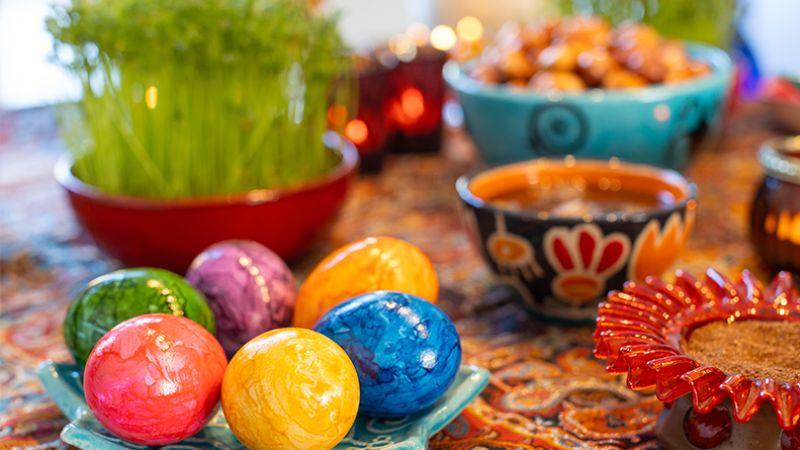Across the MENA region, spring doesn’t just signal a change in weather—it brings with it a sense of joy, renewal, and reconnection. Whether it’s through a quiet walk among blooming flowers or a full-on citywide festival, the season is welcomed with open arms and spring celebrations.
From ancient rituals to modern festivals, spring is celebrated in ways that reflect each country’s culture, climate, and history. Here’s how countries across the region greet spring in their own special way!
Egypt—Sham El Nessim: Picnics, Feseekh, and Ancient Roots
In Egypt, spring officially begins with the smell of feseekh in the air. On Sham El Nessim, families spill into parks and along the Nile for a laid-back day of picnicking. Meals usually include salted fish, green onions, tirmis, boiled eggs, and lots of sunshine.
It’s a tradition that goes back to Pharaonic times, but today it’s enjoyed by all Egyptians, no matter their background. The day is simple, joyful, and rooted in one timeless idea: celebrating life outdoors.
Iran/Kurdistan—Nowruz: Spring as a Cultural New Year
In Iran and parts of Kurdistan, spring marks a whole new year. Nowruz is rich with tradition, from decorating the symbolic Haft-Sin table to visiting family and friends. The festivities end with Sizdah-Bedar, a day spent outdoors in nature, where people picnic to shake off any lingering bad luck.
While it shares the picnic spirit of Sham El Nessim, Nowruz carries with it deeper layers of mythology, ritual, and renewal.
Saudi Arabia—A New Kind of Spring: Festivals Under Vision 2030
Spring in Saudi Arabia is starting to look a little different these days. Thanks to Vision 2030, seasonal events like the Riyadh and Jeddah Spring Festivals are reshaping how the country embraces outdoor life.
These festivals bring concerts, food trucks, light shows, and art installations to life across public spaces. They’re not tied to traditional spring rituals, but the timing and popularity show a growing appreciation for being outside, similar in spirit, if not in form, to Egypt’s long-standing spring holiday.
Jordan—Wildflower Bloom and Hiking Trails
Jordan’s way of welcoming spring is quiet but breathtaking. In places like Ajloun and the Dana Biosphere Reserve, the hills burst into color with wildflowers, and locals head out on hiking trails to take it all in.
There’s no official festival or spring holiday, but that’s part of the charm—it’s about reconnecting with the landscape. It’s a slower, more contemplative spring, built around walking, looking, and simply being in nature.
Tunisia—Sbeitla’s Spring Festival: Music Among the Ruins
In Tunisia, the ancient Roman city of Sbeitla becomes a living stage each spring. The Sbeitla Spring Festival turns ruins into venues for music, theater, and dance.
It’s a blend of old and new heritage brought to life through performance. Where Sham El Nessim is about food and family, Sbeitla’s festival is about history and art. It offers a completely different—but equally heartfelt—celebration of the season.
Algeria—Tafsit in Tamanrasset: A Celebration of Tuareg Culture and Color
Every spring, the people of the Hoggar gather in Tamanrasset for Tafsit—a three-day festival bursting with color, music, and tradition. Folk bands parade through the streets, crafts fill the markets, and crowds gather for fashion shows and beauty contests, including the crowning of “Miss Hoggar.”
Rooted in Tuareg heritage, Tafsit brings the Sahara to life in one of Algeria’s most vibrant spring celebrations.
One Region, Many Springs
Spring may look different across the MENA region, but the feeling is the same. Light, life, and a deep connection to culture and nature. Whether it’s a family picnic, a citywide festival, or a hillside in bloom, each celebration is a reminder that spring is something to be felt, shared, and enjoyed!
So, no matter how you celebrate the season, it’s a time to slow down, step outside, and reconnect with the land, with each other, and with yourself!
WE ALSO SAID: Don’t Miss…Echoes of Spring: How Ancient Middle Eastern Cultures Celebrated the Season



